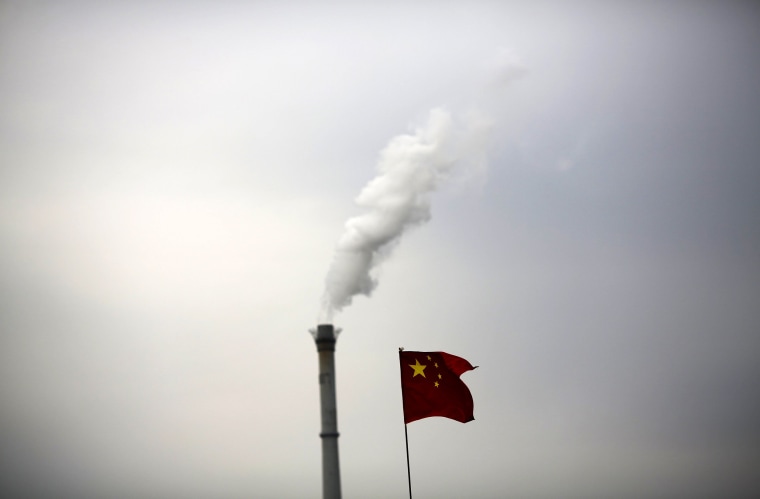The pledges made by more than 150 nations in the lead-up to a major climate change summit in Paris next week could limit the likelihood of the most extreme global warming scenarios, a new study says -– but only if countries meet or exceed the targets they’ve set for themselves in coming decades.
The pledges, or Intended Nationally Determined Contributions, include the United States’ commitment to bring down greenhouse gas emissions below 2005 levels by 26 to 28 percent over the coming decade. The U.N. Climate Change Conference will begin Nov. 30 in Paris and run through Dec. 11.
“The Paris scenarios reduce probabilities of extreme warming and increase the probability of limiting global warming to 2 degrees Celsius this century, but depend on a robust process that allows pledges to be progressively tightened over time,” the researchers wrote in the report published Thursday in the journal Science.
Their study included contributions from researchers at the U.S. Environmental Protection Agency, the State Department and the University of Maryland.
Read More: Breaking the Ice: Obama Seeks to Cement Climate Change Legacy
“We wanted to know how the commitments would play out from a risk management perspective,” EPA economist and lead study author Allen Fawcett said in a statement. “We analyzed not only what the commitments would achieve over the next 10 to 15 years, but also how they might lay a foundation for the future.”
The researchers ran four scenarios based on the pledges, including one in which nations do nothing about greenhouse gases, and another in which they only begin to take some actions in 2030. They also analyzed two sets of data calculating what would happen if countries meet or exceed their proposed climate actions past 2030.

Even the Paris scenarios don’t entirely limit the possibility of global temperatures rising past 2 degrees Celsius above pre-industrial levels -– a “guardrail” limit often pointed to by politicians. To get closer to that goal, emissions would have to be completely zeroed out by the beginning of the next century, the researchers said. Their study also could not take into account new ways of producing greenhouse gas emissions that may develop, they said.
Among the dozens of other nations that have made pledges to limit the effects of climate change is China, where leaders have said they’ll limit the rise of carbon emissions by 2030 or sooner.
Read More: Climate Change Dangers Are 'Higher Than Ever,' U.N. Report Says
World leaders have said they want to come out of the Paris meetings with a strong agreement on how to approach climate change on an international scale.
“The E.U. wants an ambitious and binding global deal in Paris,” European Commission President Jean-Claude Juncker said in a statement on Wednesday. “Our goal of holding global temperature rise below 2 degrees Celsius by the end of the century is still within reach.”
“We are witnessing a global movement like never before,” he added. “I hope this will translate into action during the negotiations next week.”
On Wednesday, the World Meteorological Organization said that 2015 has been the hottest year on record, going back to 1880, driven by global warming and a strong El Nino.